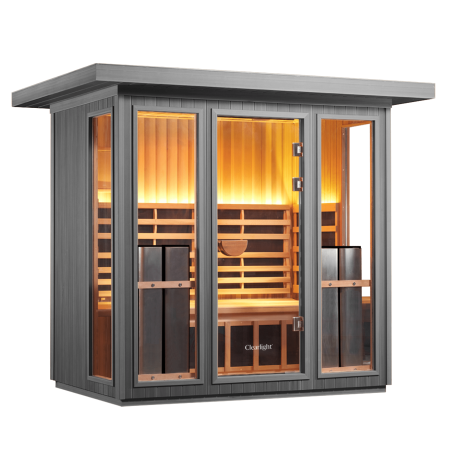This study, conducted by Takashi Kihara and colleagues, aimed to assess whether repeated sauna treatment could help improve cardiac arrhythmias, specifically premature ventricular contractions (PVCs), in patients with chronic heart failure (CHF). PVCs are abnormal heartbeats that are common in CHF and are associated with an increased risk of severe cardiac events. The study included 30 CHF patients who had more than 200 PVCs per day, as measured by 24-hour Holter monitoring. The patients were randomly assigned to either a sauna treatment group or a control group. The sauna group underwent a 2-week regimen of daily 15-minute sessions in a 60°C far-infrared sauna, followed by 30 minutes of bed rest. The control group had bed rest in a temperature-controlled room at 24°C.
The results showed that sauna therapy significantly reduced the number of PVCs in the sauna-treated group compared to the control group (848 vs. 3,097 PVCs per day). Additionally, the sauna group showed improvements in heart rate variability, a measure of autonomic nervous system balance, and a reduction in plasma brain natriuretic peptide (BNP) levels, which indicate less heart strain. These findings suggest that repeated sauna therapy can improve heart function and reduce arrhythmias in patients with CHF. The study concluded that regular sauna treatment may be an effective, non-pharmacological approach to managing cardiac arrhythmias in CHF patients, offering potential benefits for heart health through hyperthermic therapy.





